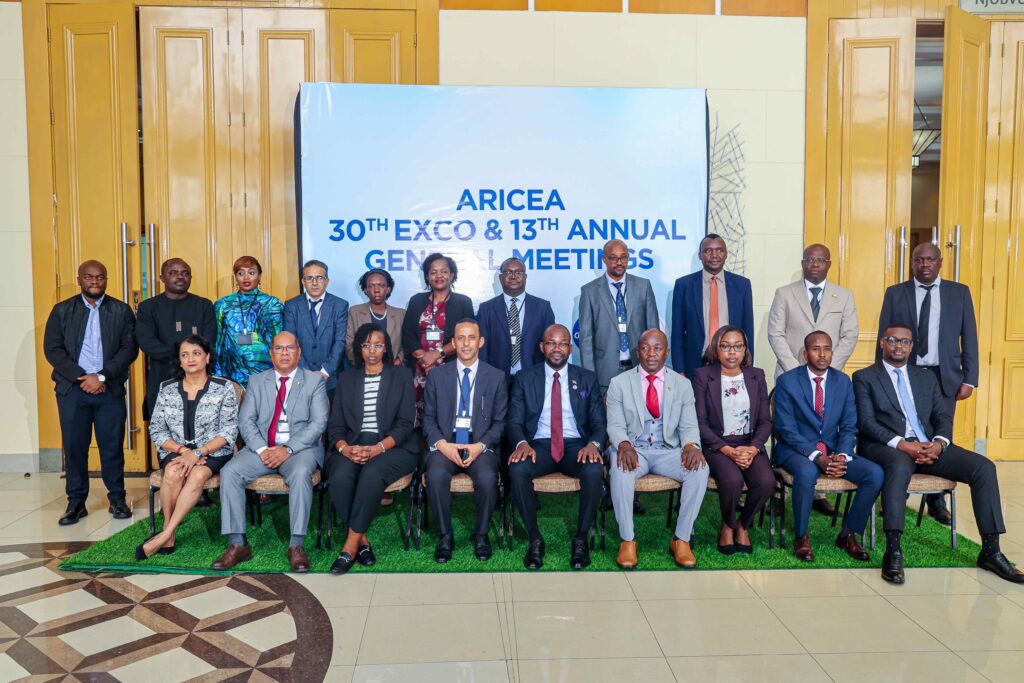
The 13th Annual General Meeting of the Association of Regulators for Information and Communications for Eastern and Southern Africa (ARICEA) was held on 12 and 13 June 2025 in Lilongwe Malawi highlighting the importance of Information and Communications Technologies (ICTs) across the region. Delegates and regulators acknowledged the rapid expansion of ICT access, which is revolutionizing sectors such as education, health, agriculture, and trade, thereby improving lives across COMESA and Africa.
Speakers who included Malawi’s Minister of Information and Digitization Hon. Moses Kankuyu Kalongashawa and COMESA’s Assistant Secretary General for Programmes Amb. Dr Mohamed Kadah stressed the importance of establishing robust, transparent, and future-proof policy and regulatory frameworks to harness the potential of the digital economy. Such frameworks are vital for fostering market confidence, facilitating online transactions, ensuring network interoperability, and protecting intellectual property and consumer rights.
Despite significant progress—particularly in mobile phone access and affordability—many Africans remain unconnected to the internet, with high costs limiting broader access. The AGM underscored the need for expanded infrastructure, driven by competition, investment, and innovation, to bridge this digital divide.
Minister Kalongashawa revealed that the government had made strides in ICT development which has enabled most locals have access to the 4G coverage standing now at a 75 percent reach. This is being pursued through several targeted infrastructure and digital access initiatives.
He named the National Fibre Backbone Project, which aims to connect key sectors and government institutions through a high-speed, fibre-optic network and the Digital Malawi Project, a comprehensive program aimed at building the foundations of a digitally enabled economy and society as key initiatives being pursued to ensure affordable and reliable internet for all Malawians. The project focuses on improving communication between government offices, enhancing ICT governance, and increasing access to digital public services. It also seeks to lower infrastructure costs by providing fast, reliable ICT systems and creating an enabling environment for the delivery of e-services, ultimately improving public service delivery.
He called on the COMESA region to operationalise the ARICEA Secretariat and let it play its rightful role of harmonising policy and regulations across the region.
“As key stakeholders in ICT development and regulation, we must work together to change this narrative about Africa. For us to experience growth and reap the benefits of ICT development, we must make deliberate, strategic efforts to promote ICT development across the continent to overcome these persistent challenges,”
“ARICEA presents a valuable platform to bring together ICT regulators from COMESA Member States, to collaborate and tackle regional challenges in a unified manner,” Minister Kalongashawa added.
Amb. Dr. Kadah addressed the issue of emerging technologies like 5G, cloud computing, IoT, and artificial intelligence, emphasizing the necessity for policies that adapt to these innovations and their socio-economic impacts.
He acknowledged that while the sector reforms have worked in terms of improving universal access and affordability for basic phone services, most of the population in COMESA and Africa are not yet connected to the internet and where it is available, the prices are quite high.
“This means that we still need to expand the ICT infrastructure to increase access and this should be backed by the right regulatory environment to promote competition, investment and innovation,” Amb. Kadah said.
He reaffirmed COMESA’s commitment to transforming the region into a digitally integrated, competitive economy adding that a key focus should be on achieving universal high-speed internet access through 5G and fiber optic deployment.
Additionally, the ASG-P also called for the operationalization of ARICEA’s Secretariat and the recruitment of an Executive Secretary, both of which would marking a significant step towards achieving laid down targets. The meeting’s agenda included critical decisions on hosting the Secretariat and establishing a Regional Cybersecurity Centre, vital for advancing ICT development and security throughout the region.

